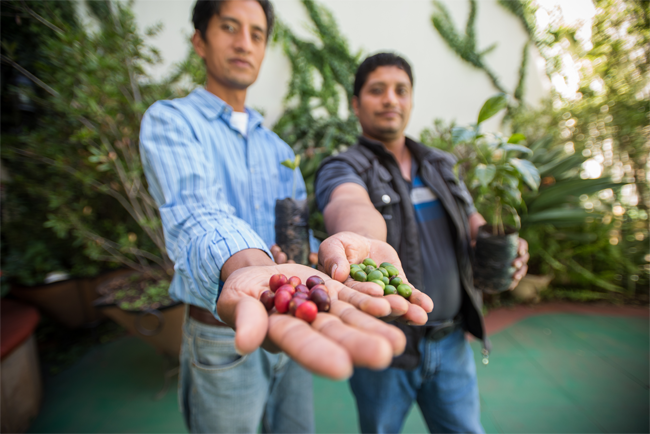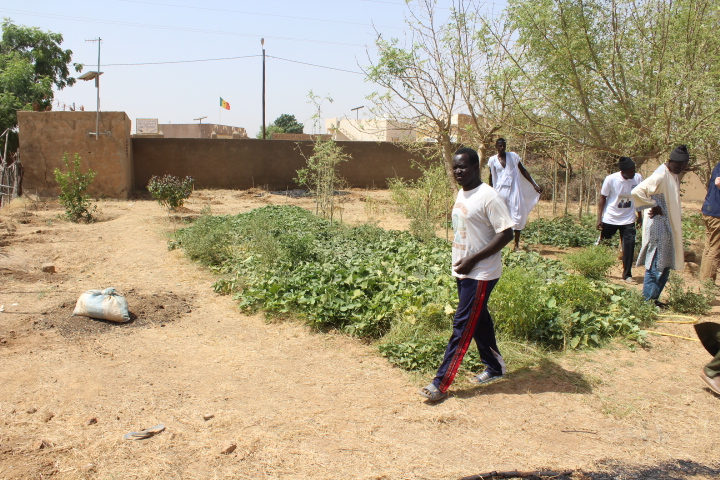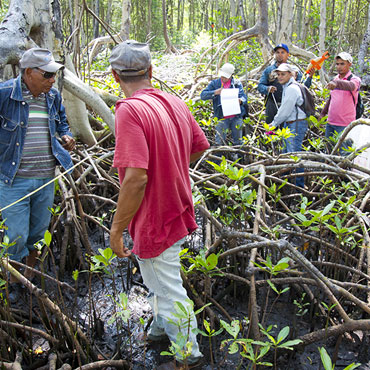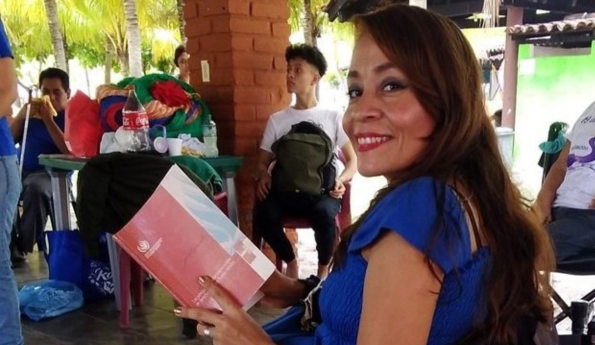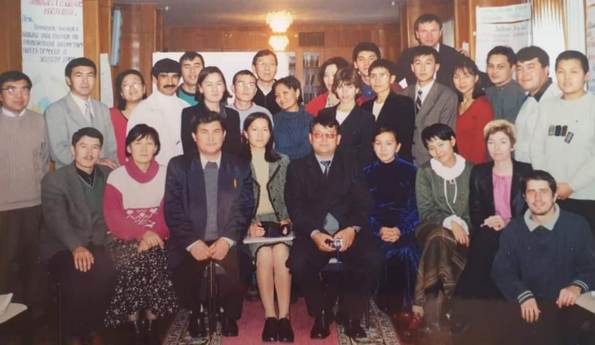For more than 50 years Counterpart International has worked around the world helping the most vulnerable build better lives and more durable futures. Among the many challenges facing citizens we work with is climate change. From severe drought to damaging storms, what we see time and time again is that the people least responsible for climate change will be the ones most impacted by the consequences.
In Guatemala
Rainfall used to be predictable and reliable in the Guatemalan Western Highlands. But not anymore. The lack of rain now means lower crop yields, less food to eat and less money from so little surplus food to sell in markets. Nearly half of all children are malnourished and nearly seventy percent of families struggle in poverty.
Counterpart International, with the generous support of the US Department of Agriculture, partners with the Guatemalan Ministry of Agriculture and local farming communities (CADERS) to offer trainings on drought resistant agriculture techniques and sustainable farming practices.
Members of the Manos Juntas CADER built a community greenhouse and planted two rounds of seedlings in less than a year. From the first round of planting, they proudly harvested enough crops to share among all of the member families. The surplus was then sold at the local market to support the CADER. This is just one example of how communities in the Western Highlands are moving forward to improve their lives.
Since 2012, Counterpart International, through our work with the Guatemalan Ministry of Agriculture, has reached more than 30,000 rural families helping them to improve their harvests, the health of their children and their financial futures.
In Senegal
Climate change and desertification are now changing the way of life in vast areas of the country. With three-quarters of Senegalese families relying on farming to feed their families, shrinking farm land and harvests pose a significant threat to their well-being.
When parents are unable to provide for their children, it’s the children who are then forced to find work to help feed the family. Helping solve both the challenge of climate change and of keeping children in school became the purpose of our work in Senegal.
For more than 15 years, Counterpart International has been sponsoring community gardens in the rural regions. Headquartered at area schools and maintained by their Parent Teacher Associations, the gardens grow climate resilient plants like millet, sorghum and moringa trees. The food is used to provide area school children with two meals a day.
School attendance has increased dramatically — for girls nearly 26 percent! And more students are staying in school longer. Retention has increased by 13% since the program began.
The community gardens are flourishing and extra food is sold at market by members of the PTA. Entire communities are now taking responsibility for their own gardens and their children’s education.
And in the Dominican Republic
Mangrove forests have long been a tremendous asset, providing critical wildlife habitat, preventing shore erosion and protecting local coastal communities from storm surges. However, since the 1980s, local communities began chopping down mangrove trees so they could use the land for more “profitable” projects. Deforestation caused by ill-conceived real estate development and over-fishing put ecosystems and communities at risk.
With scientists and world leaders focused on developing effective climate change mitigation strategies to capture carbon pollution that causes climate change, Counterpart International in partnership with Oregon State University proved that mangrove forests capture carbon at significant rates. With deeper deposits of carbon-rich soil than even scientists had anticipated, the incredible importance of preserving these silent giants and capturing this “blue carbon” to improve the Dominican Republic’s climate resiliency is now a government priority.
Counterpart International’s President and CEO, Joan Parker met with the Vice President of the Dominican National Council on Climate Change, Omar Ramírez Tejada, to discuss the design of the nationally appropriate mitigation action (NAMA) which will garner funding to fuel coastal conservation programs to protect mangroves and capture blue carbon, while at the same time protecting the livelihoods of local communities.
A Sustainable Future Begins with Us
As Ban Ki-Moon, former Secretary General of the United Nations, explained to the member states of the United Nations, “Saving our planet, lifting people out of poverty and advancing economic growth… these are one and the same fight. We must connect the dots between climate change, water scarcity, energy shortages, global health, food security and women’s empowerment. Solutions to one problem must be solutions for all.”
Thinking globally, while acting locally, Counterpart has always been committed to equipping local partners, with the skills needed to become solution creators in their own communities and countries. Working around the globe, our 50 years of experience has shown us that local voices can create the innovative solutions to some of the biggest challenges of our time — including climate change.



